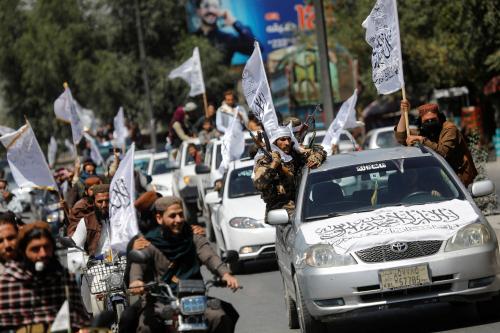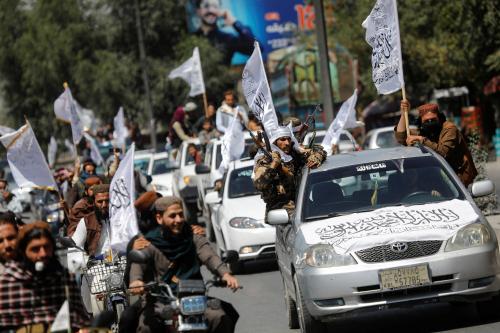

4:00 pm EST - 5:30 pm EST
Past Event
4:00 pm - 5:30 pm EST
1775 Massachusetts Avenue N.W.
Washington, DC
20036
Following the collapse of peace talks with the Taliban in September, the U.S. military has scaled up attacks on the Taliban in Afghanistan, with allied warplanes dropping bombs and firing missiles at a record pace in the 18-year-old war. Despite enduring and broad consensus that the protracted stalemate in Afghanistan will be resolved through negotiations with the Taliban, the contours of an agreement remain elusive. Moreover, with President Trump eager to fulfill his campaign promise to draw back U.S. military personnel in the Middle East and a public ever-wary of America’s longest war, U.S. policy toward Afghanistan in the final year of President Trump’s first term in office is unclear, and the risk of spiraling violence and instability remains high.
On December 16, The Brookings Institution hosted an event to discuss the state of affairs in Afghanistan, the prospect of renewed efforts at negotiations, and options for U.S. policymakers.
The research reported here was funded in part by the Minerva Research Initiative (OUSD(R&E)) and the Army Research Office/Army Research Laboratory via grant #W911-NF-17-1-0569 to George Mason University. Any errors and opinions are not those of the Department of Defense and are attributable solely to the speaker(s).
Panelist



Madiha Afzal
May 5, 2023
2023
Online Only
9:00 am - 10:00 am EDT

Madiha Afzal, Scott Tong
April 7, 2023